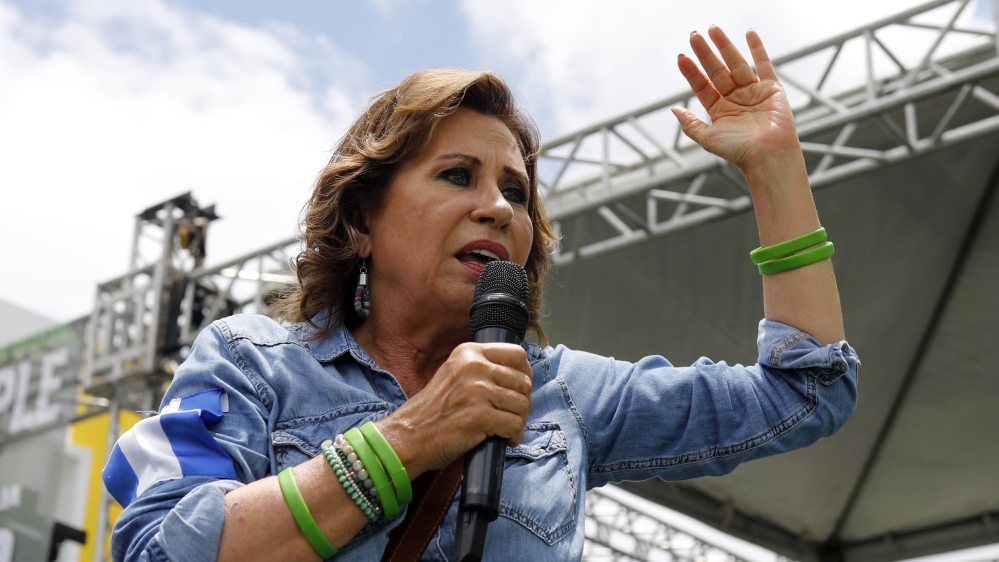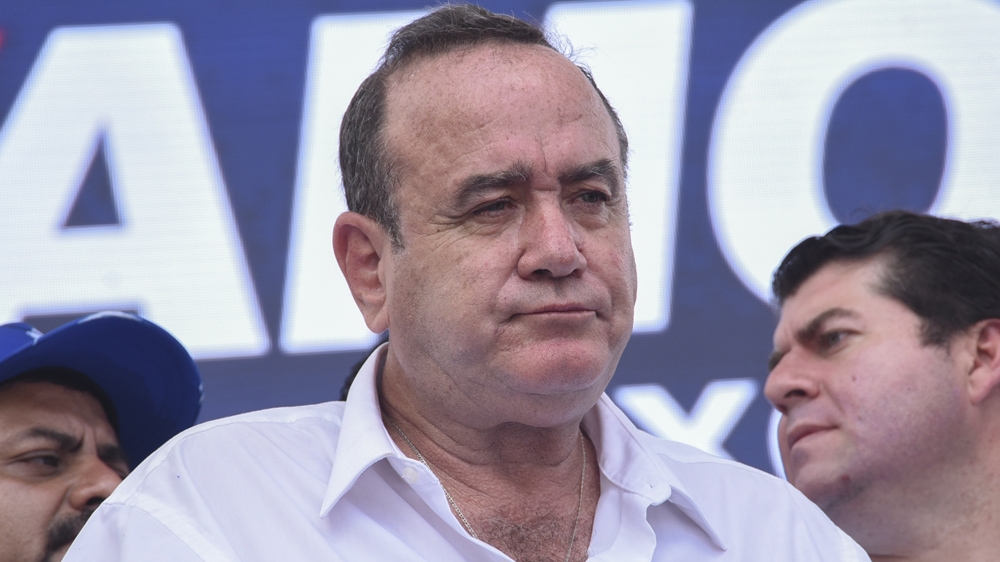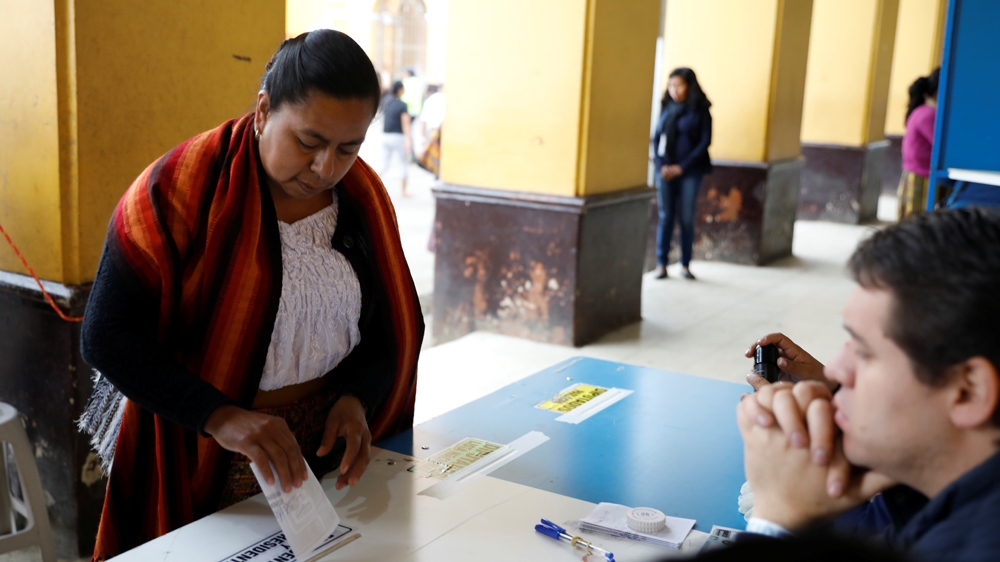Little hope for change as Guatemala votes in presidential runoff
Sandra Torres, of centrist National Unity of Hope, running up against Alejandro Giammattei, of right-wing Vamos party.

Guatemala City, Guatemala – Guatemalans are heading to the polls to pick the country’s next president, in an election taking place against a backdrop of broad voter disaffection and little hope for substantive change.
Sunday’s runoff vote pits former first lady Sandra Torres, the candidate for the centrist National Unity of Hope (UNE), against right-wing Vamos party candidate Alejandro Giammattei, a former director of the country’s prison system.
Keep reading
list of 4 items‘Absolute power’: After pro-China Maldives leader’s big win, what’s next?
Solomon Islands pro-China PM Manasseh Sogavare fails to secure majority
Pro-China party on course for landslide victory in Maldives election
Neither of the long-time presidential hopefuls had managed to obtain an outright majority in the first round, held on June 16.
“Much of the population is disillusioned with the options,” Brenda Hernandez, a women’s rights activist, told Al Jazeera.
Guatemala City street vendor Maria Garcia said she was unsure whether she would make it to her polling station. She is among the more than half of Guatemala’s 17.5 million people who live in poverty and her top concern is making enough to get by.
“I don’t think the results will change much in the country,” Garcia told Al Jazeera.

US agreement, CICIG closure
Insecurity, employment and corruption are seen as some of the top voter concerns, according to opinion polls. But for many, there are also two other pressing issues: the upcoming shutdown of an international anti-impunity commission and an immigration agreement with the United States.
Last month, the administration of incumbent President Jimmy Morales inked a widely condemned “safe third country” agreement with the US Department of Homeland Security that would require asylum seekers travelling north through Guatemala to seek asylum there instead of the US.
Meanwhile, the United Nations-backed International Commission Against Impunity in Guatemala (CICIG), a highly trusted institution in the country, is expected to shut down next month.
In recent years, the commission has worked alongside Guatemalan prosecutors to root out systemic corruption, bringing down a sitting president and dozens of other high-level government officials, business people and judges for corruption and other charges. CICIG is a joint plaintiff in dozens of ongoing criminal cases.
Criminal proceedings
After the commission began investigating Morales and the ruling party for illegal campaign financing during the 2015 election campaign, the president took steps to obstruct CICIG’s work and ensure its shutdown. UNE and Torres, who lost to Morales in the 2015 runoff, also face allegations of illegal campaign financing.
Morales and Torres currently benefit from immunity from prosecution conferred by their respective office and candidacy. Torres will likely face imminent prosecution should she lose Sunday’s race, and Morales could face the same when he leaves office in January.
Giammattei has also been subject to criminal proceedings. He stood trial for extrajudicial killings of inmates while he was the director of the prison system, but was ultimately acquitted of all charges.
Morales, Torres and Giammattei have all denied any wrongdoing.
Neither Torres nor Giammattei have promised to seek a new CICIG agreement and the future of the Guatemalan investigators and prosecutors who worked alongside the commission remains unclear.
“The most discouraging thing is seeing all the work that had been done with CICIG to make progress with regard to justice and now seeing the steps backwards,” Hernandez said.

Campaign promises
In the lead-up to the vote, the cornerstone of the Torres campaign has been social programmes, similar to those she helped direct during her ex-husband Alvaro Colom’s 2008-2012 term as president.
Giammattei, for his part, has focused on employment, pledging to create two million jobs.
Jorge Santos, director of Udefegua, a non-governmental human rights organisation, said there were marked differences between the two candidates – but also significant overlap in many of their proposals.
“There is a total lack when it comes to human rights,” he told Al Jazeera.
Giammattei proposes hardline security policies, including treating gang members as “terrorists”. Torres plans to put the military back in the streets to fight crime, even as the 1996 Peace Accords that put an end to a 36-year civil war during which state actors were found to have committed acts of genocide have sought to limit the presence of the military in internal security.
In a socially conservative country where the Catholic and Evangelical churches wield considerable power, Torres and Giammattei have both committed to “family values” policies that would attack LGBTQ rights and women’s reproductive rights, Santos said.
He argued that neither candidate has presented adequate clear proposals to continue the battle against corruption and impunity, to strengthen the rule of law, or to address violence against human rights defenders.
“There is a significant quantity of the population that has been having difficulty identifying who to vote for,” he said.
Polls opened at 7am local time (13:00GMT) and will close at 6pm (00:00 GMT on Monday).
The results of Sunday’s presidential runoff election are expected Sunday night. The winner will take office on January 14, 2020.
